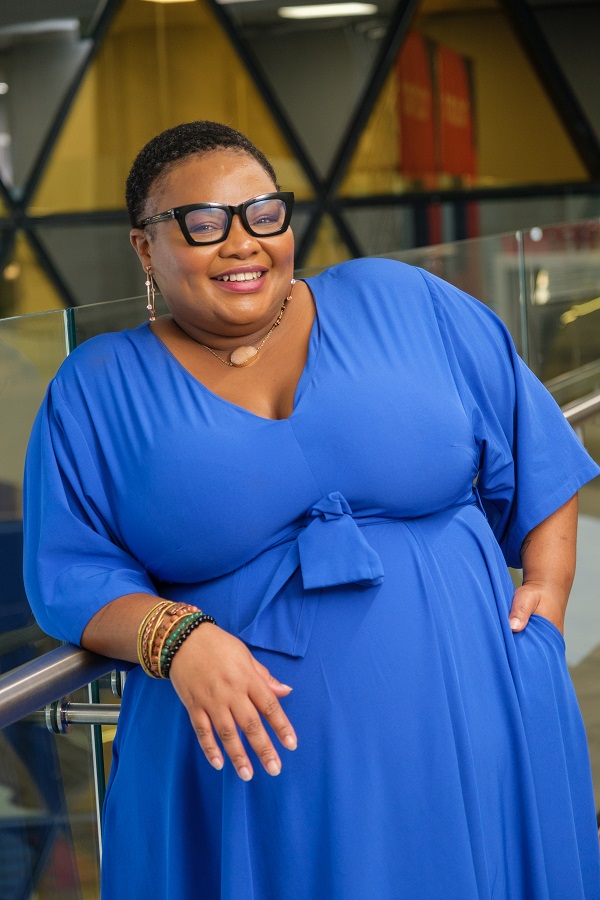
With recent media reports citing data from BetterBond indicating that women, especially those above the age of 55, are the fastest growing demographic of homebuyers. Momentum Insure is highlighting the importance of informed decision-making and advice-led choices when it comes to purchasing and protecting a home.
Because property insurance can mean the difference between recovering from an unexpected incident or facing financial ruin, Executive Head of Claims and Procurement at Momentum Insure, Funeka Ngewu, says understanding how to adapt home infrastructure and insurance for an evolving market, economy and society is crucial.
“The fundamentals of homebuying are the same for everyone, but women often face unique challenges,” says Ngewu. One such unique characteristic of female homebuyers, mentioned in the BetterBond report, speaks to the fact that women tend to live longer than men, so the passing of a spouse can lead many women to trade-in larger homes for smaller spaces that require less maintenance. “It’s essential for us to equip ourselves with the right knowledge to avoid potential pitfalls and confidently pursue our dreams of homeownership,” advises Ngewu.
Ngewu provides 5 key considerations for any woman who owns property, and is looking to make that dream come true, and wants to safeguard her investment:
- Invest in home resilience
In response to climate change and growing environmental pressures, more women are considering resilience upgrades when purchasing a home. “Technologies like boreholes and solar panels not only reduce reliance on external resources but also increase property value by making homes more self-sufficient,” says Ngewu. These upgrades are an investment in both the present and future, offering long-term benefits that can protect your home and family.
While the initial cost of infrastructure upgrades might seem daunting, especially for single mothers, Ngewu believes the long-term payoff is undeniable, “Lower utility bills, increased property value, and enhanced self-sufficiency make these investments worthwhile.”
Ngewu says it’s important to consider how these choices can contribute to building a resilient future for your family. As you upgrade your home, it’s vital to ensure that your insurance cover keeps pace. “Installing new systems without updating your policy could leave significant gaps in protection,” continues Ngewu.
2. Understanding the financial health of the body corporate
Before investing, review the body corporate’s financial statements. Ensure that it is financially stable, with sufficient reserves to cover future maintenance and repairs. A body corporate with inadequate liquidity may result in unexpected special levies that could increase your monthly costs. “For example, there may be restrictions on renovations, pet ownership, or short-term rentals. Ensure the rules align with your expectations before committing.” Investigate the building’s maintenance history and the body corporate’s long-term maintenance plan. Properties with regular upkeep are more likely to retain their value, said Ngewu.
3. When your property is a collective investment – It’s business not pleasure
Property isn’t always a personal purchase; it can be a collective investment too. When a group comes together to invest in a property, be it through a direct investment or a saving scheme like a stokvel, Ngewu says the collective becomes more important than the individual needs – and so do the terms of the insurance cover.
“If you have collectively purchased a property, it could be dubbed by the insurer as a business insurance policy. This would provide a different set of terms and conditions, but an agreement should be reached by all who are participating in the investment,” says Ngewu.
Ngewu says there has been a rise in women-only stokvels, emphasising the critical need for appropriate knowledge on what it means to protect your investment through insurance.
4. Embracing multi-generational living for modern families
In South Africa, the trend of multi-generational living is on the rise, driven by cultural values and economic factors. Many single women are now purchasing properties that can accommodate extended family members, creating homes that support and nurture multiple generations under one roof.
“Multi-generational living offers a unique set of benefits and challenges,” says Ngewu. “When buying a home, it’s essential to ensure that your property meets the needs of everyone, from young children to elderly parents. It’s also wise to consult with your insurer to ensure your policy covers the additional considerations that come with a larger household, such as security and liability protection.”
5. The right advice is the foundation when purchasing property
Investing in resilience upgrades and ensuring comprehensive insurance coverage is not just about protecting your home—it’s about securing a stable and nurturing environment for your family. As more women take the lead in homeownership, making informed decisions is crucial, particularly when considering the property’s intended use.
Ngewu says the importance of seeking the right advice cannot be overstated. Whether you’re purchasing a home for multi-generational living, as an investment property, or as part of a stokvel, understanding your goals and getting the right guidance from experts in the field is key.
“By investing in knowledge and collaborating with experts like insurers, brokers, or financial advisers, you’re not only protecting your investment but also empowering yourself and your family to thrive in the future of your dreams,” Ngewu concluded.
INFO SUPPLIED.

